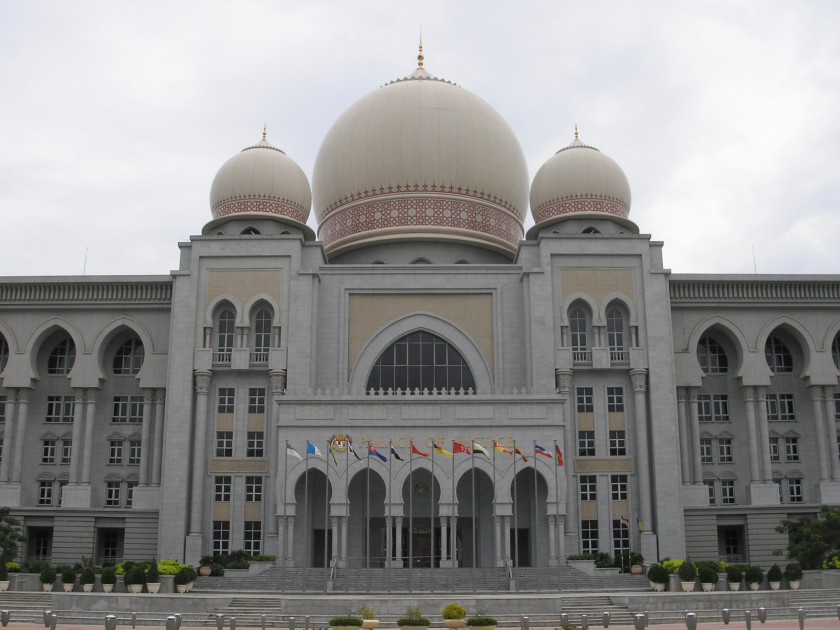PUTRAJAYA, April 10 — The Federal Court today dismissed an attempt to create a new exception to the statutory rule that bars lawyers from disclosing confidential information given by their clients.
Justice Tan Sri Suriyadi Halim Omar chaired a five-man panel that unanimously rejected two appeals by lawyer Gideon Tan to divulge such privileged information in a court document.
“On these new facts, the appeals are dismissed with no costs,” Suriyadi said, but did not give the grounds of the ruling.
Tan was a lawyer acting for his former clients Datuk Tey Por Yee and Datuk Ooi Kock Aun, who are both former directors of listed engineering, property and construction firm Protasco.
After the trio were caught up in contempt of court proceedings initiated by Protasco in 2014, Tan allegedly divulged confidential information in an affidavit/sworn statement as part of his bid to stop the contempt proceedings.
Tey and Ooi subsequently succeeded in getting the courts to expunge or remove the confidential information from Tan’s affidavit, which led to Tan appealing at the Court of Appeal and Federal Court against the removal.
Earlier today, Tan’s lawyer Wong Hock Mun said he felt the strict upholding of the lawyer-client privilege rule should be applied in virtually all cases, but urged the judges to loosen it up slightly.
Wong said he was not asking the Federal Court to open a “floodgate”, but said a person should be entitled to defend himself when his “life and liberty is at stake”.
“Mr Gideon is facing quasi criminal proceedings, he is facing a committal proceeding, he has a constitutional right to fully defend himself,” he told the judges today.
Wong also said the lawyer-client confidentiality rule in the Evidence Act 1950’s Section 126 does not apply to his client’s case, citing the same law’s Section 2 when arguing that affidavits are not bound by the rule..
Among other things, Section 126 states that no lawyer is allowed to disclose any information or document received while acting for his client, unless the client expressly consented to the disclosure.
Tey’s lawyer Yudistra Darma Dorai argued however that the lawyer-client privilege is a policy meant to protect clients, rather than to protect lawyers.
“By allowing an exception for self-defence, lawyers would be brought to court solely for the purpose of having lawyers divulge confidential information...Section 126 would be rendered useless,” he said.
Yudistra also argued the privileged information disclosed was not relevant for Tan’s defence, saying: “We are not impinging on any of his rights to defend himself.”
He noted that any disclosure of the information could prejudice Tey and Ooi who are involved in a separate ongoing court case with Protasco, and that it was not disputed that the duo had not waived the confidential status of the information.
Ooi’s lawyer Edmund Bon said the Section 2 argument was not previously raised at the High Court and Court of Appeal, before further insisting that Tan is caught by the lawyer-client privilege rule under Section 126 once his affidavit is accepted in court as evidence.
Bon added that Tan’s situation does not fall under the two exceptions in the Evidence Act where a lawyer is permitted to share confidential information.
Under Section 126, the two exceptions to the protection of information shared in a lawyer-client relationship are when the communication was made for an illegal purpose or when the lawyer observes a fact that shows that a crime such as fraud has been committed.
Lawyer Nizam Bashir, who appeared for the Bar Council which acted as amicus curiae or friend of the court, said the professional body of Peninsular Malaysia lawyers felt that the lawyer-client confidentiality rule should be maintained in its current form.
“The Bar’s position is very clear, the Bar’s position is there should not be any inroads as against the legal profession privilege,” he told the judges.
The other judges on the panel today are Tan Sri Zainun Ali, Tan Sri Ramly Ali, Tan Sri Zaharah Ibrahim and Tan Sri Jeffrey Tan Kok Wha.



















